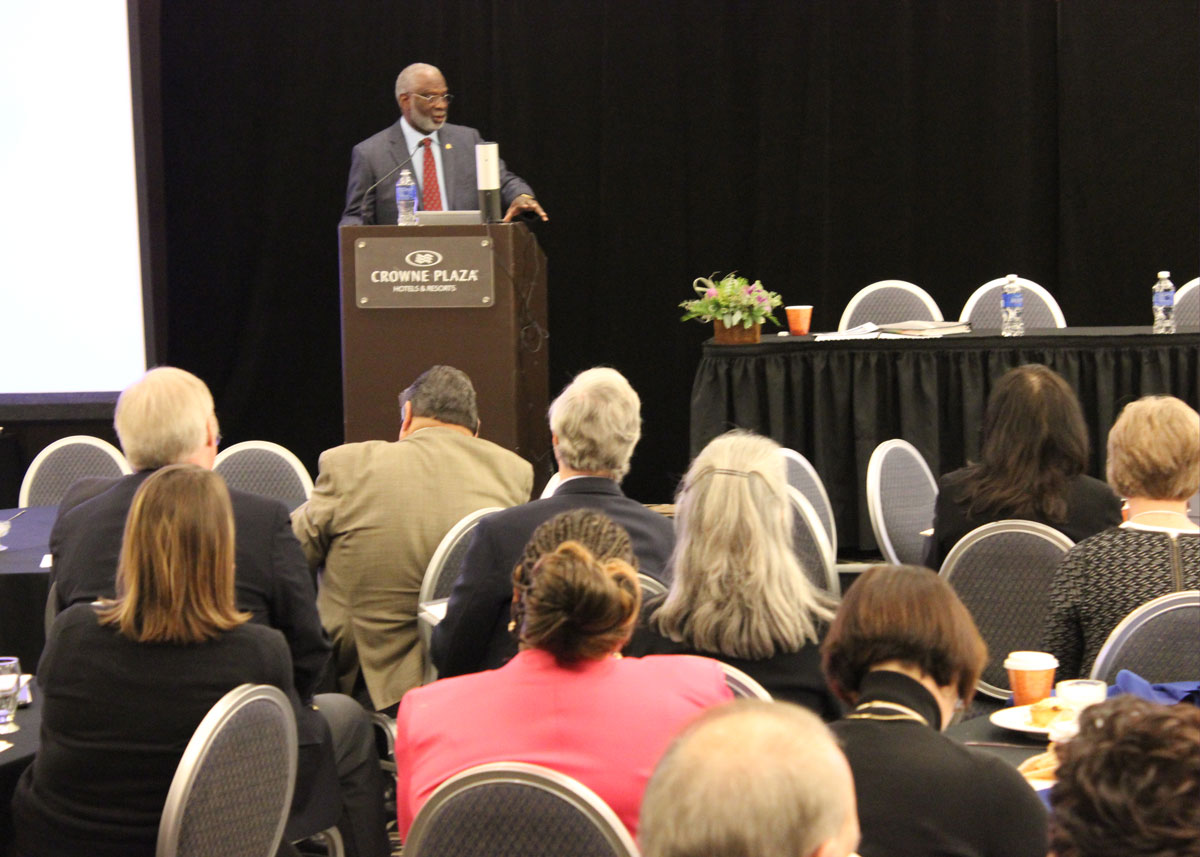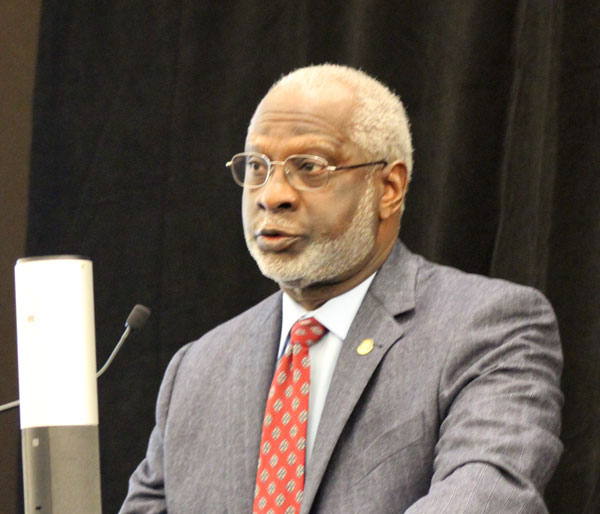Former Surgeon General & CDC Director Urges More Young People to Serve as Public Health Leaders
 The United States needs more young people to serve as public health leaders—particularly in the area of urban research.
The United States needs more young people to serve as public health leaders—particularly in the area of urban research.
So declared David Satcher, MD, PhD, Founding Director of the Satcher Health Leadership Institute at the Morehouse School of Medicine, 16th Surgeon General of the United States, and former Director of the Centers for Disease Control and Prevention as part of his keynote address at the Detroit Community-Academic Urban Research Center’s 20th Anniversary Symposium in Detroit on January 21, 2016. (Please click here if you'd like to see Dr. Satcher's presentation.)
“During his tenure with the CDC, Dr. Satcher was pivotal in our development and establishment as an urban research center in 1995,” said Barbara Israel, University of Michigan (U-M) School of Public Health Professor and Director of the Detroit Urban Research Center (Detroit URC), a partnership between several U-M researchers (in the Schools of Public Health, Nursing, and Social Work) and multiple Detroit community-based organizations and health and human service agencies focused on using a community-based participatory research (CBPR) approach to reduce health inequities in Detroit. “So it was very meaningful—and highly appreciated—that Dr. Satcher spoke at the Detroit URC’s 20th Anniversary Symposium.”
As part of Dr. Satcher’s talk—which was titled “Leadership Needs in the Quest for Health Equity”—Dr. Satcher pointed out that, according to National Institutes of Health research findings, if health disparities were eliminated in the United States, then America would have had 83,000 fewer African American deaths in the year 2000. The answer to such inequities, Dr. Satcher asserted, lies

in having more leaders willing to confront public health challenges, including situations like the water contamination in Flint, Michigan. Dr. Satcher also urged public health professionals to continue advancing their knowledge in the field.
“When leaders stop learning, they’re no longer leading,” he said.
Nearly 400 people watched and listened to Dr. Satcher’s one-hour keynote address—including both symposium attendees and participants of a live web stream of the talk. U-M Social Work Professor and Detroit URC Board Member Edith (Edie) C. Kieffer was among them.
"I was very glad to see so many students and young people at the Symposium," she said. "Given Dr. Satcher's message about the need to prepare the next generation of leaders in CBPR approaches to eliminating health inequities, it was truly inspiring seeing so many of those young leaders connecting with us, and each other, at the Symposium. I think this was one of the event's most important achievements."
During the daylong Symposium, Dr. Satcher was proclaimed a “Health Equity Champion of Detroit,” via a formal proclamation issued by the City of Detroit Mayor’s Office. Dr. Satcher’s talk, a copy of the proclamation, and the full program for the event, are available at DetroitURC.org/symposium.
A full list of Detroit URC partner organizations is also available at DetroitURC.org/about-us/our-partners.html.



